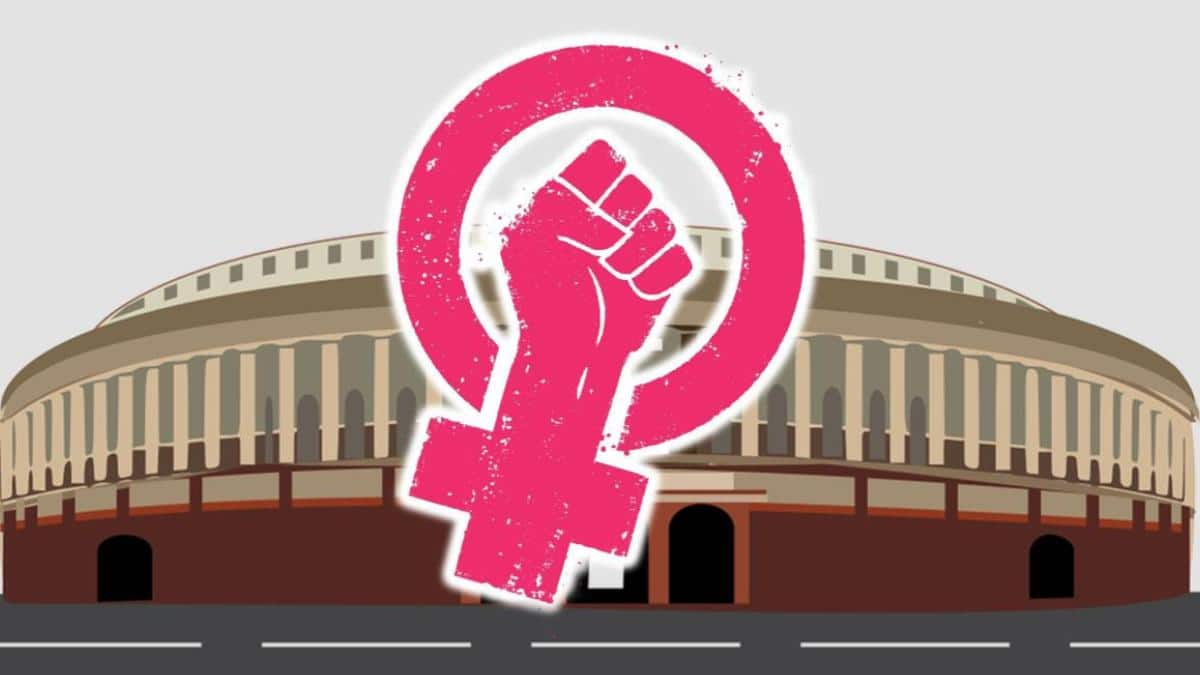By Gifty Ann Babu
The Women’s Reservation Bill was introduced in Lok Sabha on 21st September and became law on 29th September with the approval of the President of India. The new bill, officially known as Nari Shakti Vandan Adhiniyam, aims to increase the presence of women in Parliament and state legislatures by assigning 33% of seats to women. However, the one hundred and twenty-eighth Constitution Amendment Bill can only be implemented after the next census and the following electoral delimitation process.
As a positive turn in favor of the reservation bill, the 73rd and 74th Constitution amendments of 1993 mandated a one-third reservation for women candidates in the local government bodies. Soon, in 1996, for the first time, the women’s reservation bill was introduced in the parliament as the 81st Amendment Bill, which proposed 33% of seats to be reserved for women in state legislative assemblies and Lok Sabha. However, it failed to pass in the parliament due to a lack of consensus among political parties and was again introduced in 1998 when the NDA government came to power. The bill again failed to get approval from the parliament, and it recurred in 1999, 2002, and 2003. The UPA government, in 2010, was successful in passing the bill in the Rajya Sabha, however, it was not considered for discussion in the Lok Sabha. Many political parties refused to accept the bill on the grounds that the bill ignored the intersectionality of women’s issues. They demanded reservations for backward and marginalized women within the women’s reservation bill.
Even after decades of experience in democratic functioning, India stands far behind in gender equality in society and politics. The current parliament comprises only 14% of women legislators, which is also the highest number in the history of the Indian parliament. The newly passed Women’s Reservation Bill expects to improve the situation by bringing more women into politics. However, there is also uncertainty regarding the bill’s implementation, and it may only be made possible for the 2029 or 2034 general election. Even after the implementation of the bill, there are a few issues that may continue to arise. The countries that have implemented similar types of quotas for women have had an increase in the number of women parliamentarians; however, a mere increase in the number of women in politics did not mean the upliftment of women in society.
Research shows that the increased number of women in parliament may not necessarily reflect in their substantive representation. Substantive representation is a concept prominent in the field of gender and politics that looks at the role of women parliamentarians in promoting women’s interests. In some countries, elected women representatives collectively work for women’s interests irrespective of party differences. But working on a common interest can be challenging in a country like India, where there are more differences among social categories than similarities. This, however, does not diminish the importance of the women’s quota in India, as this can be a stepping stone for further empowerment of women in politics.
Irrespective of the implementation of the Bill, the political parties in India can play a significant role in women’s access to parliament. The parties act as a gatekeeper to political office. The voters in India, in general, give their vote, keeping the political party in mind rather than the candidate. Moreover, in most cases, if a political party has strong supporters in a constituency, they can win the election irrespective of the gender of the candidate. Political parties in India can also adopt the voluntary quota system that many countries have adopted and implemented. However, the fundamental problem lies in the patriarchal structure of society. The quotas and laws that help improve the representation of women in politics must be accompanied by structural changes in society.
The author is Ph.D. Candidate, Centre for Russian and Central Asian Studies, Jawaharlal Nehru University, New Delhi.
Disclaimer: Views expressed are personal and do not reflect the official position or policy of Financial Express Online. Reproducing this content without permission is prohibited.

Leave a Reply